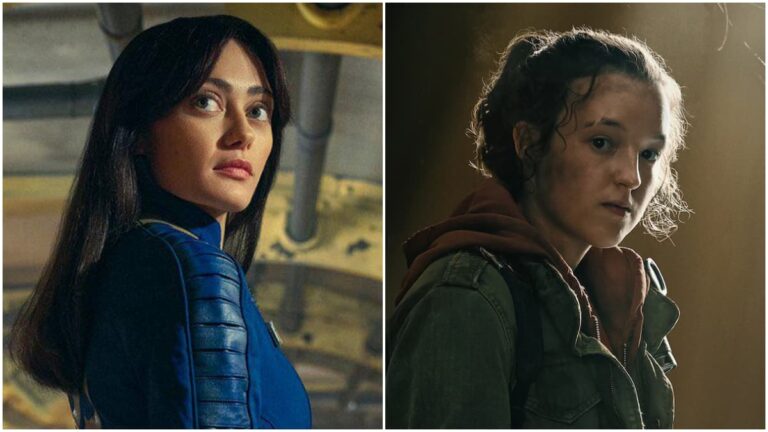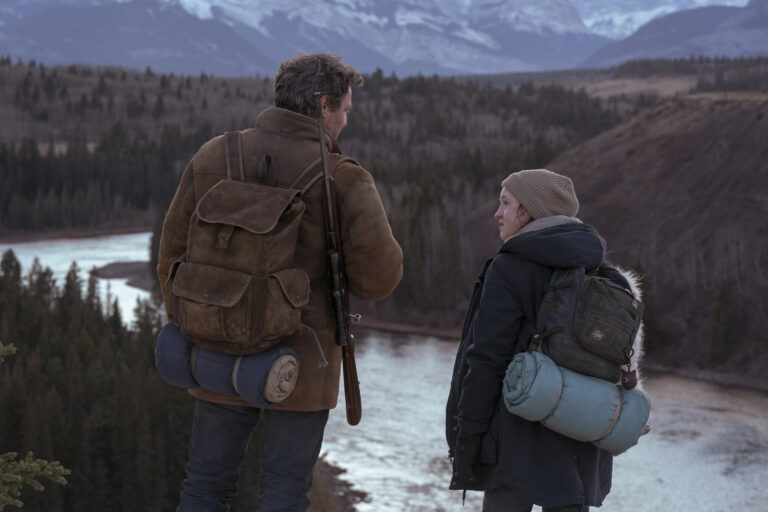Joel Miller isn’t exactly the therapy-seeking type. But make no mistake – he’s a textbook case portraying post-traumatic stress disorder (PTSD). Losing his daughter Sarah at the outbreak of the cordyceps pandemic fractured him deeply. One moment, Joel was a doting single dad, laughing and teasing Sarah on his birthday. The next, his world collapsed completely. Sarah’s sudden, violent death tore Joel’s psyche apart, stripping him bare.
Fast forward 20 years, and Joel’s emotional walls could rival an armored fortress. Portrayed masterfully by actor Pedro Pascal in HBO’s adaptation of “The Last of Us,” Joel guards his heart fiercely. Emotions become risks, connections threats. He turns colder, harder, more violent. But beneath the gruff exterior, Joel silently suffers from classic PTSD symptoms: avoidance, emotional numbness, hypervigilance. Opening his heart again means risking the pain he guards against so fiercely. No wonder he’s hesitant about escorting Ellie across the infested wasteland; bonding could lead to repeating history’s trauma.
Then there’s Ellie. She’s spirited, sarcastically humorous, delightfully foul-mouthed – but beneath that feisty exterior lies profound survivor’s guilt. Ellie’s trauma stems from losing her childhood friend Riley, whom fans recognize vividly from their unforgettable “Left Behind” saga. Ellie carries this loss heavily, expressing monophobia – a profound fear of being alone. Survivor’s guilt seeps into every move she makes. Ellie often demotes her own worth, harboring quiet beliefs that everyone around her endures loss because of her.
This self-blame shapes Ellie dramatically. She rushes headlong into danger to prove her value, showcasing the kind of courage that borders recklessness. Unlike Joel, Ellie’s coping mechanism is action. She acts first, thinks second, rarely hesitating before violent confrontations or precarious adventures. But Ellie’s emotional complexity isn’t lost amid her tough-girl façade. Actress Bella Ramsey captures this contradiction vividly – a girl desperate for belonging, haunted by loss, yet resilient enough to soldier on.
Remarkably, Joel and Ellie’s trauma paves the way for their tentative connection. Initially, Joel refuses emotional entanglements. He views Ellie as cargo, nothing more. But emotions creep in unpredictably. Joel catches himself softening – first minor glimpses, brief jokes, subtly teaching Ellie survival skills. Gradually, interactions become warmer, more parental. He instinctively treats Ellie as a surrogate daughter. The scars of losing Sarah linger ever-present, turning Joel fiercely protective.
Because each loss Joel suffers compounds his existing trauma, every danger Ellie faces triggers his deepest fears. Protecting Ellie morphed into Joel’s redemption arc, his second chance at fatherhood. Ultimately, it’s this paternal instinct fueling the infamous hospital dilemma. Fans know this controversial ending intimately. Joel chooses Ellie’s life over humanity’s possible salvation. His choice isn’t simple selfishness – emotionally, it’s trauma speaking loudly. Giving Ellie away means reliving Sarah’s loss; that pain runs far too deep.
For Ellie, her survivor’s guilt drastically shapes how she views Joel’s rescue decisions. Ellie initially believes her immunity has purpose; surviving Riley’s death meant she had something essential to offer the world. When Joel denies her sacrifice, survivor’s guilt flares up massively. Ellie questions her worth again, internalizing misplaced anger directed at Joel. Why deny humanity a cure unless her life holds no true meaning? Ellie’s inner wounds widen here, shaping their future relationship complexities vividly.
This emotional aftershock hits sharply during their time in Jackson and later encounters. Ellie becomes colder towards Joel – not cruelly, but subtly. A shadow crosses her expressions; anger simmers beneath casual exchanges. It’s not just adolescent rebellion – it’s grief unresolved, guilt gnawing relentlessly, a resentment steeped in trauma.
The show brilliantly represents the nonlinearity of healing. Emotional recovery isn’t smooth sailing, especially in apocalyptic circumstances. Ellie and Joel’s attempts at mending trauma are riddled with setbacks, anger outbursts, and emotional distancing. Still, glimmers of warmth emerge – small jokes, shared stories, quiet moments around campfires. These silent gestures gradually rebuild mutual trust, revealing the series’ poignant understanding of complicated human grief.
Considering emotional healing, it’s impossible to skip Dina’s story, played empathetically by Shannon Berry. Dina’s loss after the events in Seattle brings authentic insight into handling grief. Unlike Joel’s stoicism or Ellie’s volatile fury, Dina grieves differently. She seeks quietude, routine, and gentle acceptance – it’s subtle yet powerful, complementary to Joel’s avoidance and Ellie’s outward anger. The show highlights variations in human response brilliantly. Dina reminds viewers no single roadmap exists when coping with pain.
Here’s why these traumas captivate viewers profoundly: each character’s reactions feel utterly human. Joel’s guarded heart, Ellie’s energetic recklessness, Dina’s quiet sorrow – they resonate emotionally because they’re believable and relatable. Even non-gaming viewers encounter emotional authenticity – connecting viscerally without prior lore knowledge. The series isn’t just highly watchable television but a profound examination into human vulnerability amidst chaos.
Interestingly, the show doesn’t isolate trauma – it intertwines grief heartbreakingly with the protagonists’ fierce love for one another. Emotional bonds prove double-edged swords in this wilderness adventure. Closeness brings comfort and purpose – but also amplified fear. For Joel, loving Ellie equals potential grief resurfacing, loss repeated. For Ellie, attaching sentimentally heightens self-doubt about her worthiness. Yet both stubbornly choose connection anyway. They risk fresh emotional pain, illustrating humanity’s greatest paradox – love, even when painful, remains essential.
One unforgettable moment reflecting trauma’s influence emerges vividly when Ellie suffers serious injuries after an attack. In pain, scared and helpless, Ellie’s first instinct is blame. She lashes out emotionally at Joel rather than acknowledging her vulnerability or weakness. Why Joel? Because trauma makes vulnerability feel dangerous, especially for survivors. Blaming Joel briefly restores Ellie’s control, protects emotional fragility temporarily. But beneath anger lies fear – fear of dependency, fear of losing autonomy, mirroring her traumas starkly.
The creators intelligently avoid oversimplifying psychological issues – no neat resolutions exist magically for Ellie or Joel. On-screen realism doesn’t understate emotional struggle since traumas linger unresolved realistically. Characters neither fully “recover” nor entirely “heal”; they learn methods, instead, to survive daily pain. This honest portrayal honors real-life trauma survivors.
Additionally, the subtlety employed reflecting trauma engages viewers cleverly. Instead of lengthy exposition, trauma manifests through actions, dialogue subtleties, facial expressions. It invites viewers to understand these struggles independently. Fans piece together characters’ internal emotional puzzles slowly yet steadily, enhancing empathetic viewer connection profoundly.
Let’s also appreciate how Joel’s growing father-daughter bond with Ellie revitalizes him slowly. Previously submerged deeply in isolation’s darkness, compassion reignites Joel’s humanity quietly. This gentle rekindling of emotional life powerfully illustrates trauma survival beautifully – not through sweeping, heroic moments but softer, quieter steps towards healing.
The ultimate magic lies precisely in navigating tragedy’s complex anatomy. Facing trauma, characters don’t always make logical choices – they’re pushed instinctively by pain, guilt, love, and grief. Through carefully layered storytelling, “The Last of Us” honestly investigates humanity in crisis and devastation. Its exploration acknowledges trauma exists without reducing characters solely slipping into unending despair.
More significantly, it emphasizes that emotional survival is subtly heroic. Even in darkness, Ellie jokes sarcastically, Joel softly smiles, Dina comforts quietly. These characters don’t erase their pain dramatically. Instead, they illuminate small, powerful acts of resilience amid overwhelming devastation – bravely choosing fragile humanity despite constant peril.
Ultimately, “The Last of Us” delivers beyond thrilling action sequences or horrifying infected encounters. It provides an emotionally gripping narrative anchored entirely in realistic psychological complexity. Trauma and resilience intertwine delicately, creating richly authentic characters undeniably human. Ellie, Joel, Dina – all navigate emotional minefields daily, searching perpetually for solace. Their struggle, imperfect yet courageous, fuels powerful television storytelling, endlessly intriguing both devoted fans and enthusiastic newcomers alike.




